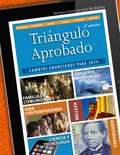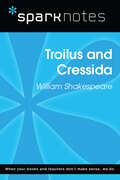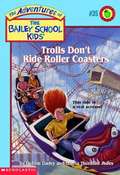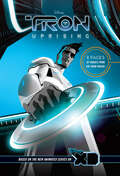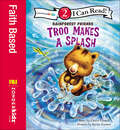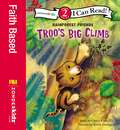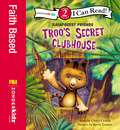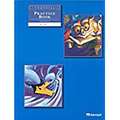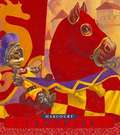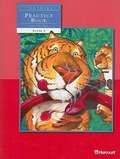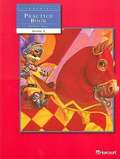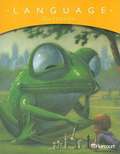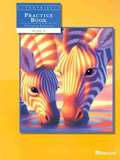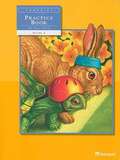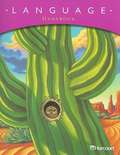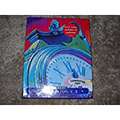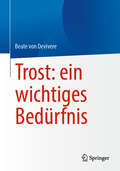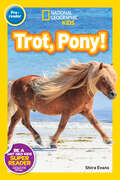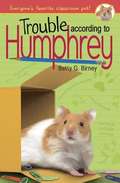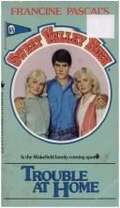- Table View
- List View
Troilus and Cressida (SparkNotes Literature Guide Series)
by SparkNotesTroilus and Cressida (SparkNotes Literature Guide) by William Shakespeare Making the reading experience fun! Created by Harvard students for students everywhere, SparkNotes is a new breed of study guide: smarter, better, faster. Geared to what today's students need to know, SparkNotes provides: *Chapter-by-chapter analysis *Explanations of key themes, motifs, and symbols *A review quiz and essay topicsLively and accessible, these guides are perfect for late-night studying and writing papers
Trolls Don't Ride Rollercoasters (The Adventures of the Bailey School Kids #35)
by Debbie Dadey Marcia Thornton JonesThere are some pretty weird grown-ups living in Bailey City. But could the small woman selling Tshirts at the carnival really be an evil troll? The Bailey School Kids are going to find out! "What do trolls have to do with Bailey City?" Eddie said. "Shhh," Howie warned. "We can't let J.J. find out we know she's a troll or we'll be in big trouble." "You are already in trouble," Eddie said with a laugh. "You're in trouble of being crazy." "Trolls are made-up creatures from fairy tales," Melody reminded Howie. "They don't sell T-shirts at carnivals," Liza said. "And they definitely don't ride roller coasters," Eddie told Howie.
Tron Uprising: The Junior Novel
by Disney Book GroupThis novelization of the animated original movie, TRON: Uprising!, includes a full-color insert of stunning images, straight from the show!
Troo Makes a Splash: Level 2 (Rainforest Friends #Level 2)
by Cheryl CrouchA lesson in considering others&’ needs ...It&’s hot and Troo wants to go swimming! Now! But when he blocks off the river to make a small pool, the water stops flowing downstream. What will happen to the creatures that need the river to live?This is a Level Two I Can Read! book, which means it&’s perfect for children learning to sound out words and sentences. It aligns with guided reading level J and will be of interest to children Pre-K to 3rd grade.
Troo's Big Climb: Level 2 (I Can Read! #Level 2)
by Cheryl Crouch Kevin ZimmerA lesson in obedience… Troo is not a baby, and he’s not afraid to climb the biggest tree in the forest—even though his parents told him not to. But this tree isn’t safe for anyone! What will happen if Troo falls?
Troo's Secret Clubhouse: Level 2 (I Can Read! #Level 2)
by Cheryl Crouch Kevin ZimmerA lesson in getting along with siblings… Troo and his friends are too grown up to play with Troo’s little sister. But when Kewa and Rilla go home, who will a lonely Troo play with?
Trophies Bright Surprises (Grade #3)
by HarcourtThis intervention reader contains a collection of enjoyable reading treasures.
Trophies Practice Book: Grade 1, Volume 2
by HarcourtA great book for children to improve their pronunciation and reading skills. It also contains stories with colorful pictures.
Trophies, Grade 5: Take Flight
by Harcourt School Publishers StaffIngrid was down by the lakefront one day when she saw Sam and Travis emerge from the brush. Same swung a tackle box and held their two fishing poles. Travis grasped a line with a fish on it.
Trophies: Banner Days
by HarcourtA strategy is a plan for doing something well. You can use strategies when you read to help you understand a story better. First, look at the title and pictures. Then, think about what you want to find out. Using strategies like these can help you become a better reader.
Trophies: Banner Days
by Harcourt School Publishers StaffIn Banner Days, all days are great days for reading. You will read about people and story characters who use their imaginations, travel to faraway places, and work with their neighbors to solve problems.
Trophies: Grade 2, Volume 1
by HarcourtThis book provides reinforcement exercises for each lesson in the Student's Book.
Trophies: Language Handbook
by Harcourt School Publishers StaffMany people think writing is difficult. They do not realize that it is easy to become a better writer! This handbook will give you the skills, strategies, tips, and models you need to become the best writer you can be. Let's start with an overview of writing and writing strategies.
Trophies: On Your Mark
by HarcourtAre you ready? You are about to travel on an exciting path. You may be surprised at how much you learn on the way. In On Your Mark, the stories, poems, and articles will take you to many exciting places. Some places are in the past, some are in outer space, and some are at the center of the earth! You will meet many unusual characters and read about interesting facts. Some stories might even make you laugh out loud.
Tropical Ecosystems and Ecological Concepts Second Edition
by Patrick L. OsborneTropical habitats cover over one third of the Earth's terrestrial surface and harbor much of its biodiversity, with many areas rich in endemic species. However, these ecosystems are under significant and growing threat from issues such as deforestation, land degradation and ocean acidification. This introductory textbook provides a comprehensive guide to the major tropical biomes. It is unique in its balanced coverage of both aquatic and terrestrial systems and in its international scope. Each chapter is built around a particular tropical ecosystem, with descriptive case studies providing a framework around which ecological concepts and applied ecological topics are presented. This second edition has been thoroughly updated to reflect recent advances in the field and includes a greater focus on the impact of global climate change. The text is supported throughout by boxes containing supplementary material and is illustrated with over 200 clear, simple line diagrams, maps and photographs.
Trost: ein wichtiges Bedürfnis
by Beate von DevivereDas humane Trostbedürfnis wird in diesem Werk als wichtiges und zentrales Bedürfnis des Menschen wissenschaftlich diskutiert und praxisnah aufbereitet, d.h. im Licht neuster Forschungsergebnisse definiert und die Möglichkeiten und Instanzen der Erfüllung dieses ‚archaischen&‘ und unbehausten Grundbedürfnisses in Zeiten der epochalen Herausforderungen und Zukunftsaufgaben dargestellt.
Trot, Pony! (National Geographic Kids Readers)
by Shira EvansTrot, prance, and jump with ponies! Young readers will meet lots of different kinds of ponies and learn what they do. Through text features such as the vocabulary tree and the wrap-up activity, kids will be introduced to vocabulary in concept groups—helping them make connections between words and expand their understanding of the world.
Trouble According to Humphrey (Humphrey #3)
by Betty G. BirneyThe third book in the beloved and award-winning school hamster series!Humphrey loves to solve problems for his classmates in Room 26, but he never meant to create one! Golden-Miranda, one of his favorite students, gets blamed when Humphrey is caught outside of his cage while she&’s in charge. Since no one knows about his lock-that-doesn&’t-lock, he can&’t exactly squeak up to defend her. Humphrey really has his paws full when Don&’t-Complain- Mandy-Payne and her family stir up more big trouble. Humphrey manages to help Pay-Attention-Art and Sit-Still-Seth and even survives a trip to the vet, but can he clear Miranda&’s name without giving up his freedom forever?Look for all twelve of Humphrey's adventures!
Trouble At Home (Sweet Valley High #65)
by Francine Pascal Kate WilliamHow valuable is family time? The Golden Family has been fighting like crazy. Elizabeth, Jessica, and Steven try to stop their parents arguing but it doesn't seem to help. What follows is a tormentous time for the family.
